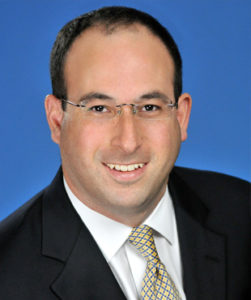
 By Cary Silverman, a partner in the Washington, D.C. office of Shook, Hardy & Bacon L.L.P. and Frank Cruz-Alvarez, a partner in the firm’s Miami, FL office. Mr. Cruz-Alvarez is the WLF Legal Pulse’s Featured Expert Contributor on Civil Justice/Class Actions.
By Cary Silverman, a partner in the Washington, D.C. office of Shook, Hardy & Bacon L.L.P. and Frank Cruz-Alvarez, a partner in the firm’s Miami, FL office. Mr. Cruz-Alvarez is the WLF Legal Pulse’s Featured Expert Contributor on Civil Justice/Class Actions.
Any attorney familiar with consumer law who has viewed a late-night commercial targeting prescription drugs, medical devices, or other products has probably wondered why basic rules that apply to anyone else who sells a product or service do not seem to apply to plaintiffs’ lawyers. That may be finally changing.
On September 24, the Federal Trade Commission issued a press release indicating that the agency sent warning letters to several attorneys and “lead generators” expressing concern that some of their mass tort television advertisements mislead the public. At the same time, the FTC warned consumers that they should not stop a prescribed medication in response to an attorney advertisement. The FTC also offered guidance to attorneys on how to advertise without running afoul of the “fundamental principle” of FTC law: “Ads for services or products can’t be unfair or deceptive.” Attorney advertising, the FTC emphasizes, “is no exception.”
Lawsuit ads targeting prescription drugs and medical devices follow a common troubling formula. Ads are typically introduced as “medical alerts” to get viewers’ attention and mask their true profit motivation. Some flash the FDA’s official logo, which both builds credibility and may lead viewers to think the agency approves or supports the advertisement’s content. Ominous warnings follow, asserting that a medication that the FDA approved as safe and effective, and a physician prescribed after considering the risks to a patient, may lead to awful injuries or death. Ads often hide the identity of the sponsor and other important information in fine print that no one can possibly read. An advertiser that uses these types of tactics to sell any other product or service would be in hot water with the FTC.
The FTC’s action comes on the heels of an article published this month by nine FDA researchers who studied the impact of attorney advertisements on patients’ decisions to discontinue a direct oral anticoagulant (DOACs), including dabigatran (Pradaxa), rivaroxaban (Xarelto), apixaban (Eliquis), and edoxaban (Savaysa). Doctors prescribe these blood thinners to patients with conditions that place them at risk for strokes. They help by keeping blood clots from forming in an artery, a vein, or the heart, but anyone on an anticoagulant is at risk of excessive bleeding. The authors searched the FDA’s Adverse Event Reporting System to identify reports of patients who discontinued or reduced the dose of their DOACs after viewing an attorney advertisement.
What they found is stunning. Through November 15, 2017, the authors identified 66 reports of patients who discontinued their medication after viewing a lawsuit advertisement, usually without consulting with their doctor. Because of these fearmongering ads, which warn viewers that their medication causes internal bleeding, “bleeding on the brain,” “or even death,” half of these patients (33) experienced a stroke, seven people died, and 24 people experienced other serious injuries. Most of the victims were senior citizens. These figures likely significantly understate the number of injuries and deaths, as few doctors, patients, or their families may think to report attorney advertisements to the FDA or even be aware that an ad sparked a patient’s decision to stop taking his or her medication.
Misleading advertisements have generated thousands of lawsuits that have pressured some companies into settlements, but are the concerns warranted? Well, judges and juries have not thought so. Nearly all of the blood thinner cases that have reached trial, for example, have ended in defense verdicts. Meanwhile, the American Medical Association has decried these commercials. In a resolution adopted this year, the AMA’s House of Delegates indicates the issue has become “even more pervasive” since the physicians’ group first expressed concern in 2016, as actual patient harm is occurring as a result of misleading lawsuit ads.
The FTC’s recent action warns law firms and lead generators that:
- Lawsuit ads that cause, or are likely to cause, viewers to discontinue their medications may constitute an unfair act or practice.
- Ads that open with sensationalized warnings or alerts may mislead viewers to believe they are watching a government-sanctioned medical alert or public service announcement.
- Some lawsuit ads may misrepresent the risks associated with drugs. These ads could leave consumers with the false impression that the risks of the drugs exceed the benefits or that the FDA has recalled their prescribed medication.
The Commission suggests that lawsuit advertisements:
- Immediately identify themselves as paid advertising.
- Avoid “scare tactics.” Risks asserted in the ads, like health-related claims made in advertising other products, must be substantiated by competent and reliable scientific evidence.
- Include clear and prominent audio and visual disclosures stating that consumers should not stop taking their medications without first consulting their doctors.
Unless plaintiffs’ law firms that specialize in mass tort litigation and lead generators change their advertising practices, more action is likely to come. The FTC indicates that it “will continue to monitor potentially deceptive or unfair lawyer advertising” and “take follow-up action as warranted.” In addition, two states—Tennessee and Texas—passed laws this year prohibiting common deceptive lawsuit advertising practices, which could lead to state attorney general enforcement actions.
